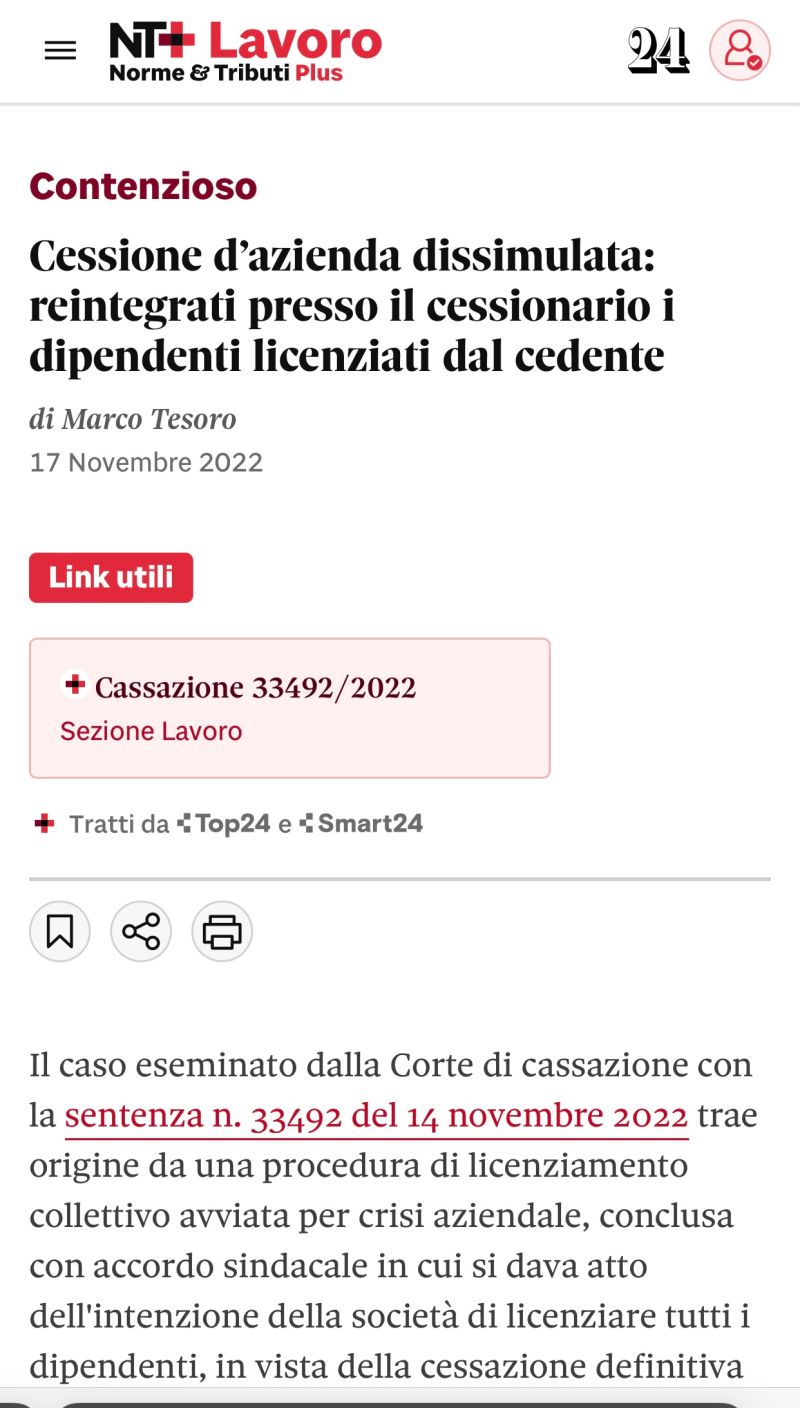
Published on Sole24Ore – NT Lavoro – 18/11/2022
The case examinated by the Court of Cassation with the judgement no. 33492 of 14th November 2022 originates from a collective redundancy procedure started for company crisis initiated due to company crisis, which ended with a union agreement acknowledging the company's intention to dismiss all the employees because of the permanently ceasing operations.
A month after intimating the redundancies, the company rented the activity to a newco created for the occasion.
For the Court of First Instance, the company's activity had never ceased and the business leasing contract in reality disguised a business transfer due to article 2112 of the Civil Code, given the identity of the corporate purpose of the transferor and the transferee, the use by the transferee of the same factories and business assets of the transferor, and the carrying out of the activity with the same customers and suppliers.
The omission of the company's real intentions in the notice of the initiation of the collective redundancy proceeding invalidated the entire procedure, due to the breach of the obligation to provide information pursuant to Article 4, paragraph 3, of Law 223/1991, resulting in the unlawfulness of the redundancies.
The employment relationships unlawfully terminated by the transferor, therefore, had to be considered as existing at the time of the conclusion of the lease contract and continued with the transferee, pursuant to and for the purposes of Article 2112 of the Civil Code.
The Tribunal of First Instance’s judgement, also confirmed by the Court of Appeal, was appealed in Cassation by the transferor and the transferee, which denied the existence of a company transfer and sustained that the employees’ transfer to the transferee presupposed, in any event, the existence of the employment relationship at the time of the transfer.
With regard to the existence of a business transfer, the Court of Cassation notes that the appellants have not challenged the complex ratio decidendi of the judgment under appeal, which held that the entire operation of collective redundancies, cessation of activity and leasing of the business eluded the provisions of Article 2112 of the Civil Code.
For the Court of Cassation, it’s not important the time lag between the cessation of the transferor's activity and the incorporation of the transferee - as noted by the appellants - since, from a logical and legal point of view, the conclusion of the business lease contract necessarily presupposes the simultaneous existence of the two legal entities.
Under a different profile, recalling their own consolidated orientation, the Cassation Court notes that employment relationships unlawfully terminated before the transfer of the business continue with the transferee "without the anteriority of the termination with respect to the transfer of the business being relevant", save the possibility for the transferee to oppose the exceptions relating to the employment relationship, the manner of its termination or the protection applicable to the transferor against the dismissal, regardless of the defences put forward by the transferor and of the formation of a judgment against him and in favour of the employee (Cassation's judgement no. 4130 of 2014; Cassation's judgement no. 5507 of 2011).

